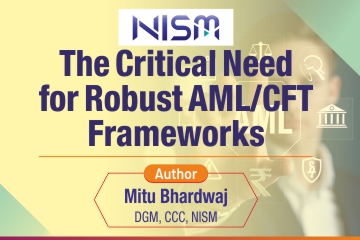International Convention Hall of the BSE Phiroze Jeejeebhoy Towers Dalal Street, Fort, Mumbai
Sandip Ghose made a mention of Darwin and Arthashastra. The Darwinian notion is that big fish eat smaller fish and get eaten by the even bigger fish, leading to a survival of the biggest and fittest. Arthashastra makes a mention of fairness in business.

Prashant Saran said that competition is central to the economy. Through the ages, there has been unequal distribution. Kings granted monopolies through charters in the middle ages. Guilds/cartels established to ward off competition gained centre stage. Wealth of Nations by Adam Smith spoke of competition as a leveller. SEBI follows the principle of traffic police. For instance, manipulation of markets by circular trading needs to be policed and curbed. In the case of utilities, regulators deal with natural monopolies. We deal with competition in a fragmented way. There is a need for an umbrella organization, a combination of micro and macro (rules and principles). Compliance is an over-all concept. There is also a need to avoid ‘free-for-all’ regulation.
Ashok Chawla said that change is the only constant. An illustration is that the BSE Hall, once a trading platform, has morphed in to a network of computers. The office of the Controller of Capital Issues (Delhi) gave way to the Securities and Exchange Board of India (Mumbai). The philosophy of government has changed after 1991. MRTP was based on control. There is a market which is a regulator. Sectoral regulators such as SEBI and others are in existence, but an economy-wide body is needed for fair play and greater good. Before 1991, a phone connection, scooter, Fiat car allotment etc. were dealt with by monopolies. There is a felt need for oversight on competition. Surveys show a lack of understanding on competition. Competition is good for long run benefit, and over-weighs costs. It incorporates fairness and propriety. Markets reward governance, and punish low credibility. Listed companies need to comply with all laws, including competition law. Advocacy is an important aspect of new laws, to raise awareness. Penalties are only the starting point. A law serves a message to everybody. The OEDC toolkit, framework and architecture are available. Competition, or the lack of it, depends on behaviour of enterprises. Price manipulation is another unhealthy aspect of financial markets. Compliance cannot be a trick–box approach. It must percolate from the Board of Directors to rest of the organization. Culture determines implementation. It is also the role of associations and trade bodies not to create habits against competition law. Mergers and Acquisitions is an ex-ante approval, and firms need to be monitored. Regulation is a consultative process. Orders convey how a law the commission thinks. Regulatees ought to to know about the line of thinking. CCI has handled s large number of cases, Business to Consumer as well as Business to Business. CCI looks at cartel behaviour activity. The ultimate objective is to improve market as a whole, and provide a fair field
M S Sahoo said that prevention is better than cure. Being proactive. Aspects such as restraint of trade, dominance, cartel arrangement etc are based more on conduct than hard evidence. CCI’s activities prohibit companies from anti-competition in markets.

For NISM, 2025 was defined by a renewed commitment to capacity building and investor education. Anchored by our mandate from…

The threats of money laundering (ML) and terrorist financing (TF) have grown exponentially due to the increasingly interconnected nature of…

One thing we all love is speed. We love it when groceries are delivered in 10 minutes, we want to…
© 2026 National Institute of Securities Markets (NISM). All rights reserved.